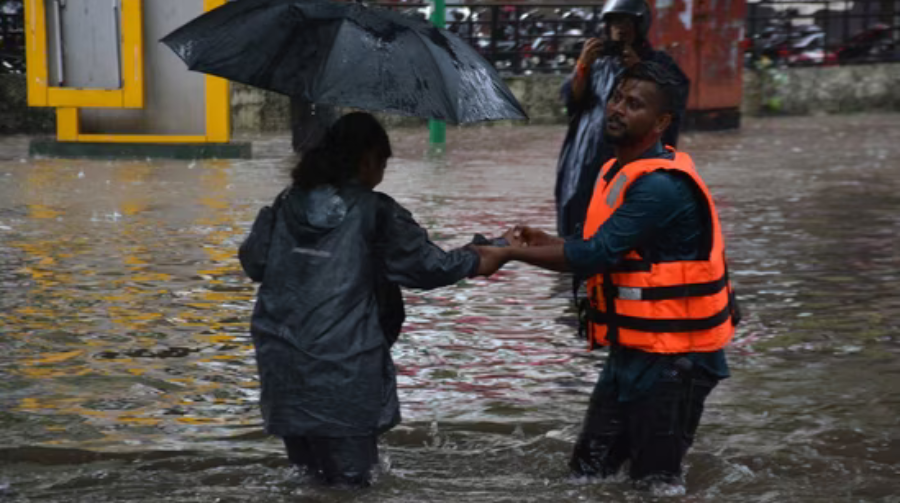Health & Wellness
Red Alert in Mumbai: Doctors Warn of Waterborne Diseases – Here’s How to Stay Safe
Mumbai’s monsoon is a double-edged sword. While the rains bring relief from the summer heat, they also unleash a wave of health hazards. Doctors across the city have issued a red alert, warning citizens about a sharp rise in waterborne diseases like cholera, typhoid, hepatitis A, and gastroenteritis.
Contaminated water, flooded streets, and poor sanitation create the perfect breeding ground for infections. Vulnerable groups—children, pregnant women, and the elderly—are at the highest risk.

Why Waterborne Diseases Spike During Mumbai Rains
When heavy rains cause flooding, sewage often mixes with drinking water sources, exposing citizens to dangerous pathogens. Meanwhile, the high humidity speeds up food spoilage, increasing the risk of consuming contaminated meals.
Some of the most common monsoon-linked diseases include:
- Cholera: Severe diarrhoea, dehydration, and weakness
- Typhoid: High fever, abdominal pain, constipation or diarrhoea
- Hepatitis A: Jaundice, nausea, fatigue, loss of appetite
- Gastroenteritis: Vomiting, abdominal cramps, watery stools
These conditions can become life-threatening if left untreated, making early diagnosis and medical care crucial.
Doctor-Recommended Safety Tips for Mumbaikars
Dr. Manjusha Agarwal, Senior Consultant – Internal Medicine at Gleneagles Hospital, Parel, shared essential precautions for staying safe:
1. Drink Safe Water
- Always boil or filter water before consumption.
- Avoid drinking tap water directly.
- Store drinking water in clean, covered containers.
2. Eat Smart
- Avoid street food like bhajiyas, chaat, and pani puri, no matter how tempting.
- Wash fruits and vegetables thoroughly.
- Consume freshly cooked meals instead of stale food.
3. Maintain Hygiene
- Wash hands with soap before meals and after using the washroom.
- Carry a hand sanitiser when outside.
- Keep nails trimmed to prevent bacterial buildup.
4. Protect Yourself Outdoors
- Wear proper footwear to avoid cuts and infections.
- Avoid wading through floodwater whenever possible.
- If exposed to floodwater, consult a doctor for leptospirosis prophylaxis.
5. Stay Vaccinated
- Get vaccines for Hepatitis A and Typhoid, especially if you live in high-risk areas.
When to Seek Immediate Medical Help
Doctors strongly advise against self-medication. Visit a healthcare professional immediately if you experience:
- Constant vomiting
- Persistent high fever
- Severe dehydration
- Continuous diarrhoea or bloody stools
Early intervention can prevent complications and save lives.
Final Word
Mumbai’s spirit is resilient, but so are the germs that thrive in monsoon conditions. Staying alert and practicing simple preventive measures can go a long way in safeguarding your family’s health.
As Dr. Agarwal stresses, “Prevention is always better than cure. Small lifestyle changes today can protect you from serious health risks tomorrow.